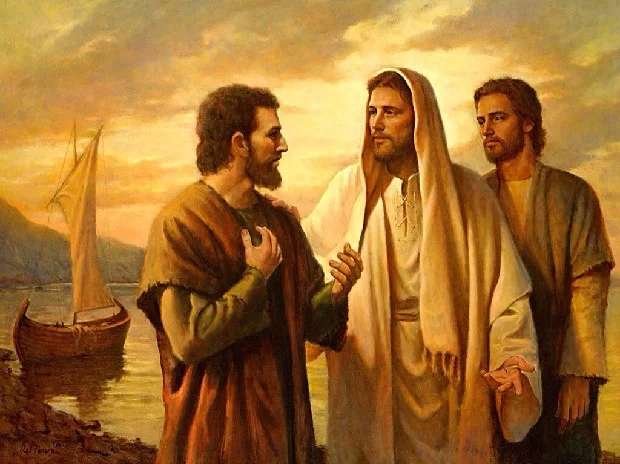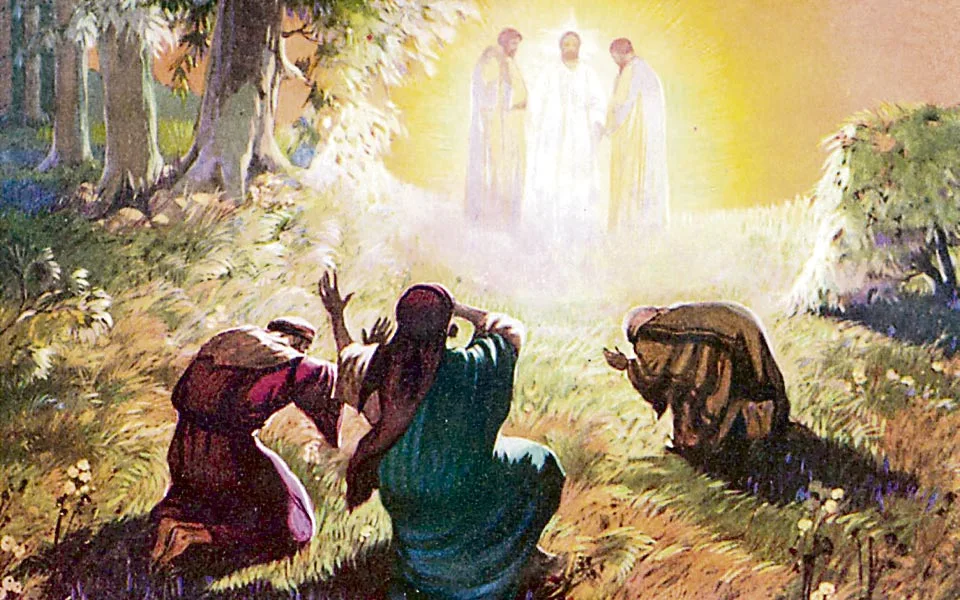The Way of Prayer: A Guide to the Footsteps of Jesus
The material in this selection is a more advanced message for readers who are more urgent in their search for the gift of contemplation. This is first in a series of blogs on the Christian life, prayer and self-knowledge.
I
The Easter Vigil is the most sacred of all liturgical celebrations. The Liturgy of the
Light is the first of four parts. It centers on the proclaiming of the Exsultet, the
Easter hymn of singular beauty and sovereignty. This song celebrates the Easter
victory of life over death, grace over sin, love over hatred. There is a crescendoing
announcement expressed ten times in a description that begins “This is the
Night…” In this story of salvation there are two stunning statements between the fourth and fifth declarations of “This is the Night…”. They challenge us to address the wonderful glory of the Easter reality.
O truly necessary sin of Adam,
Destroyed completely by the Death of Christ!
O Happy fault that earned so glorious a Redeemer!
Some verses later, the song continues:
That sanctifying power of this night
Dispels the brokenness, washes faults away,
Restores innocence to the fallen, and joy to the mourners,
Drives out hatred, fosters concord and brings down the mighty.
Part of the great mystery of Christ Crucified and Christ Risen that we celebrate in the three holy days of the Triduum is this. We see Christ as the New Adam. He is offering us a way out of the sinful state we were born into. Because of the sin of Adam and Eve, every human being comes into the world with a deep brokenness, a disoriented heart and blinded mind. Our natural state makes us the victims of ignorance and pulled toward division, isolation and hatred.
This state of Alienation leads away from God in every possible way. The clear message of the Exsultet is that God is calling us back to the original innocence. The vocation of every person is to forsake the Alienation, the inheritance of our first parents, and direct our whole being to the pursuit of God.
Our true destiny is to restore ourselves and all persons and all creation as one in God. This is the goal of the true and authentic Christian life. Jesus has given us an invitation and an opportunity for personal transformation. This is how the message of the Exsultet becomes reality in our life. Jesus calls: “Come and see.” (John 1:39) Jesus reveals: “I am the way and the truth and the life.” (John 14:6) Jesus gives us the path to freedom and life: “Whoever wishes to come after me must deny himself and take up his cross and follow me.” (Mk8:34)
Along with the sacraments, prayer becomes a central issue in refocusing our life in harmony with the beautiful message of the Exsultet. This is the message and the call of the gospel. This is walking in the footsteps of Jesus. A common name for this search for personal transformation is the spiritual life.
II
Here is a description of the spiritual life that I have found very helpful. It is the quest for self-transcendence. This is a long, painful process. It involves moving from ourselves as the center to making God the center of our reality. This is the Christian journey in the footsteps of Jesus. Every part of our life is involved in the personal transformation from selfishness to service and love.
Deep and personal prayer is critical along with our relationships, responsibilities and commitments. This mature prayer integrates and authenticates all of our life in the pursuit of God.
III
Here is a simple description of the spiritual journey. There is the beginning. In this initial state the consequences of our sinful condition hold sway along with the superficiality resulting from a consumer culture. We take that first step away from our original sinfulness and selfishness. Then there is the actual journey which involves a conversion process. We begin the long road to freedom from our self-centered ways. Self-knowledge is a tedious but healing and redemptive element of this process. Eventually we have a sense of arrival. We gain an awareness of movement away from the dominance of the ego. These three steps of beginning, journey and arrival are the advancement of the spiritual life.
There is true experience of progress. We have begun to transform the deep distortions of our heart with gospel values. Though we do not realize it at the moment, this is just the first step of a long, wearisome journey. The process will repeat itself over and over and over again. It is a spiraling passage to our center where God resides.
At each stage we see things with a more acute perspective but never with total clarity. The repeating conversions create a depth of purification and transformation. These new insights are far beyond our power to envision at the beginning of the journey. Each stage offers new horizons, new inclusiveness, new openness to reconciliation. Once we thought it was progress to see two sides to every story. Eventually we begin to see that often there may be several sides to the story. The same is true with our racism and our attitudes to different states of sexuality.
Many other prejudices have held sway with no challenge. Each new level of awareness invites us to face turmoil and new choices. Slowly we begin to see the great chasm between what we want and what we need.
While we move forward by faithfulness to the struggle, each stage along the way enlightens us to see God’s goodness and our sinfulness more clearly. Humility becomes more important with each step of growth. The irony is that we recognize our personal limits and weakness and sinfulness much more clearly as we make progress in our pursuit of God.
We see our sinful state with always more transparency with each step forward!
Another paradox of the spiritual journey is this. At each stage, we make significant progress from the previous stage. Yet we are more or less blind to the upcoming progress. That only happens when we do the necessary steps for the next conversion along the way.
We are regularly tempted with the distortion that we have finally arrived. The many phases of the spiritual journey always involve a deeper degree of prayer, more detachment, and especially confronting our addictions, which often cripple us from any further progress.
Along the way, self-knowledge and humility shine the light in the darkness.
IV
The spiritual life seeks to transform us into that person described in the Exsultet:
That sanctifying power of this night
Dispels the brokenness, washes faults away,
Restores innocence to the fallen, and joy to the mourners,
Drives out hatred, fosters concord and brings down the mighty.
To accomplish this goal, to be a new person in the image of Christ, we will continue with some helpful material in the coming weeks. We will offer reflections on the Journey of self-knowledge, the Journey of Prayer, the Journey of Lectio Divina, the Journey of Christian Meditation and finally, some considerations on Teresa of Avila’s Program of Humility, Detachment and Charity.
All of these reflections aim to help us to walk in the footsteps of Jesus. The Importance of Self-Knowledge on the Christian Journey.
























